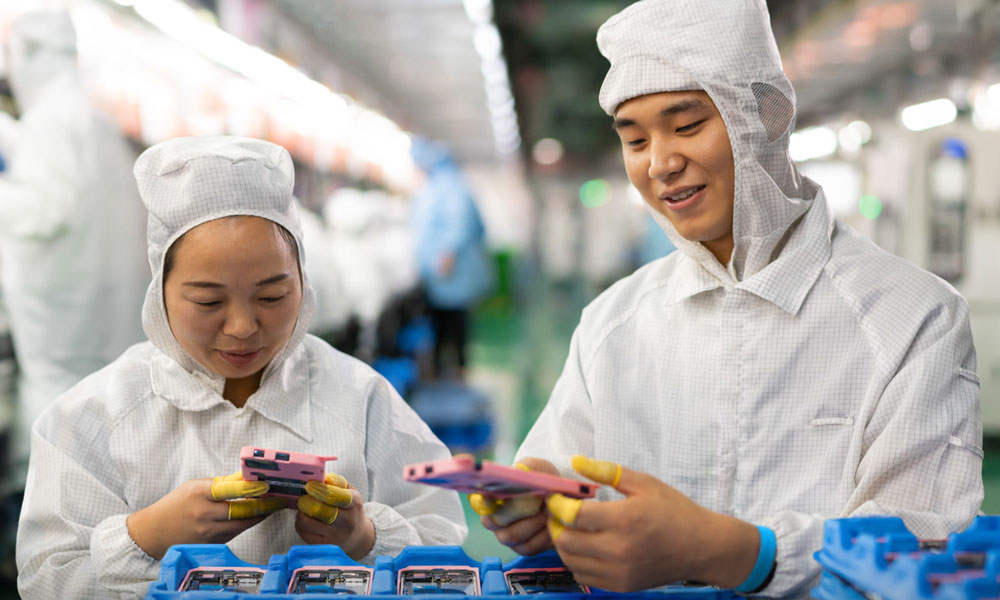iPhone Manufacturer, Foxconn, Lays Off 60,000 Workers and Replaces Them with Robots
 Credit: Apple
Credit: Apple
Toggle Dark Mode
Electronics manufacturing company Foxconn has gotten some pretty bad press in the past. The Chinese contract manufacturer, who produces components and assembles devices for Acer, Amazon, Blackberry, Cisco, Dell, Google, Hewlett-Packard, Microsoft, Motorola, Nintendo, Sony, and most notably, Apple, has been involved in several controversies concerning poor working conditions.
In fact, several suicides by Foxconn factory workers have been blamed on working conditions within the company, and in 2012, 150 factory workers threatened a mass-suicide in protest of how they were treated at the factories. The company is in the news again, this time thanks to a recent report by the South China Morning Post, which claimed that the company has recently laid off 60,000 workers, replacing them with robots to cut costs.
Perhaps besides the working conditions scandals, Foxconn is probably best known as a main component supplier and manufacturer of Apple products. Among Foxconn’s large clientele, Apple is certainly the largest and most profitable for the company – some analysts claim that Apple accounts for 40-50% of Foxconn’s revenue.
Foxconn is largely responsible for the assembly of iPhones and iPads, and has built entire factories dedicated to assembling Apple products. At one factory, however, it appears as if a good deal of that assembly will no longer be performed by human hands. According to the South China Morning Post, a government official in the city of Kunshan, where the factory is located, claimed that the factory “has reduced its employee strength from 110,000 to 50,000, thanks to the introduction of robots. It has tasted success in reduction of labour costs.”
The introduction of robots in the factories, although expensive up-front, serves a dual purpose for the company. Not only does it stave off criticism due to poor working conditions for factory workers, but it also reduces labor costs and creates a more streamlined process. However, there are rising concerns that the introduction of robots could have a devastating effect on Kunshan’s population, a good portion of which are migrant workers employed at factories.
According to the BBC, 505 factories in the Chinese province of Dongguan have invested almost $630 million into robotic technology, with the aim to replace thousands of human workers. Foxconn claims that replacing assembly jobs with robots, however, does not equate to long-term job losses. “We are applying robotics engineering and other innovative manufacturing technologies to replace repetitive tasks previously done by employees,” Foxconn said in a statement to the BBC. “Through training, [we] also enable our employees to focus on higher value-added elements in the manufacturing process, such as research and development, process control, and quality control.”
It’s unclear what the factory in Kunshan produces, but it’s likely that more Foxconn factories will follow suit in the future. Hopefully, an increase in the automation of assembly and factory jobs doesn’t equate to rapid job loss and disastrous economic conditions for the areas where many people count on these factory jobs for employment.
What do you think about the recent developments within Foxconn factories? Let us know in the comments!






